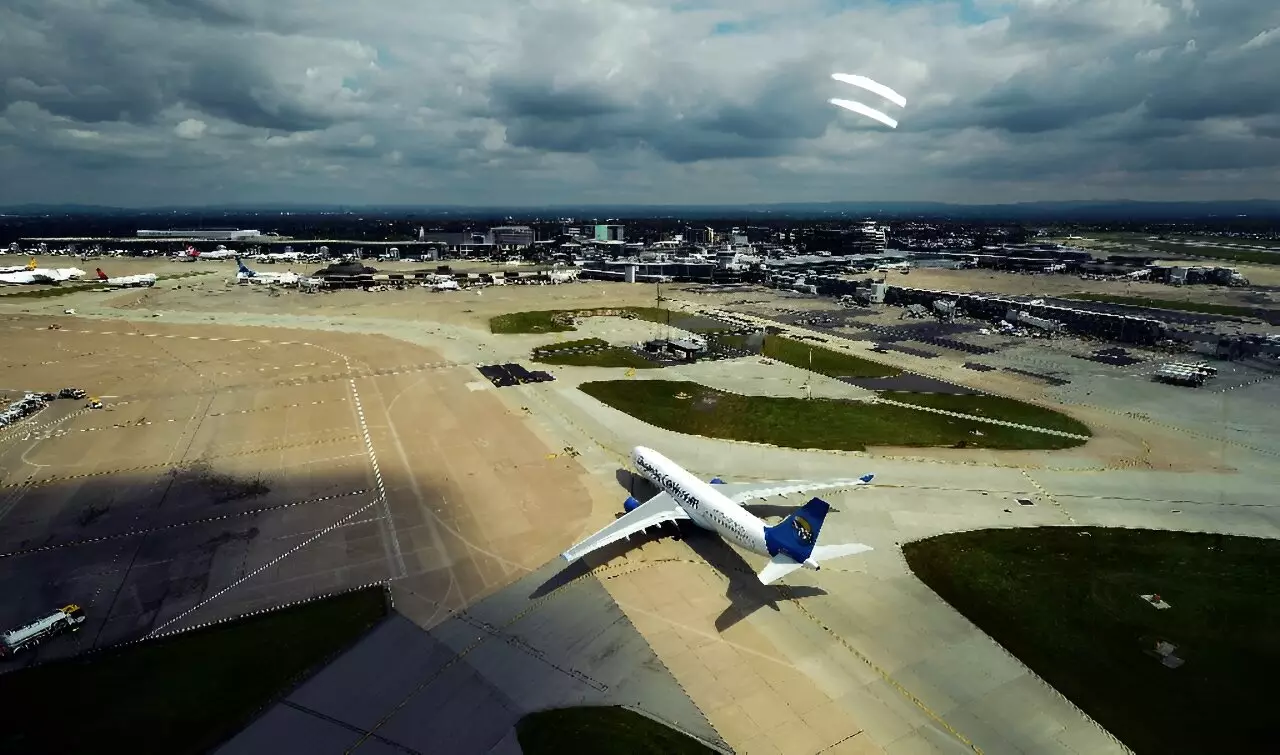Manchester Airport, the third-busiest in Britain, found itself in the middle of chaos as over 100 flights were cancelled, affecting thousands of passengers on a Sunday. This unexpected turn of events disrupted at least 20 percent of all outgoing and incoming flights, leaving travelers stranded and frustrated. The airport spokesperson expressed the possibility of further disruption, leaving many uncertain about their travel plans.
The aviation analytics firm Cirium reported that a total of 66 departures and 50 inbound flights were cancelled, with easyJet bearing the brunt of the cancellations. The Manchester Airports Group, which also oversees London Stansted and the East Midlands airports, revealed that a major power cut in the area was to blame for the chaos. Passengers were advised to stay away from two of the three terminals, highlighting the magnitude of the operational challenges faced by the airport.
Chris Woodroofe, the airport managing director, shared that the power cut not only disrupted flight schedules but also caused problems with airport security and baggage systems. This led to a domino effect, further exacerbating the logistical nightmare for both airport staff and passengers. As flights gradually resumed in the afternoon, the backlog of delayed and cancelled flights posed a significant challenge to normal operations.
The unfortunate incident at Manchester Airport adds to a series of technical and strike disruptions that have plagued the UK travel industry in recent years. From rail delays to air traffic control issues, travelers have faced a myriad of challenges, impacting their journeys and testifying to the fragility of the transportation infrastructure. Last month’s nationwide outage of immigration e-gates and the air traffic control fault in August of the previous year serve as stark reminders of the vulnerability of the travel sector.
The aftermath of the Manchester Airport power cut serves as a wake-up call for both airport authorities and travelers alike. The incident sheds light on the importance of contingency planning and resilience in the face of unexpected disruptions. As the travel industry continues to grapple with various challenges, the need for robust backup systems and efficient crisis management becomes more evident than ever.


Leave a Reply